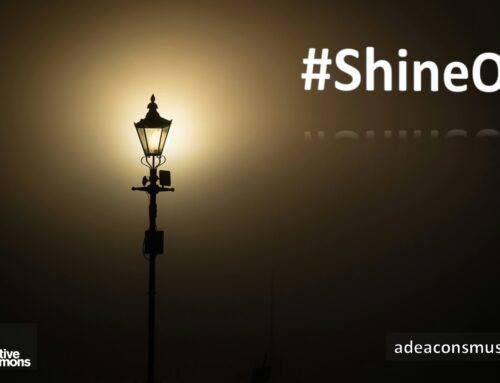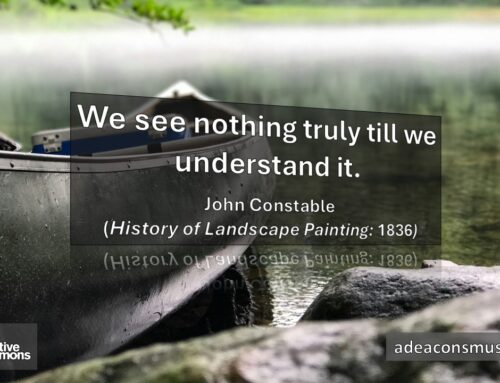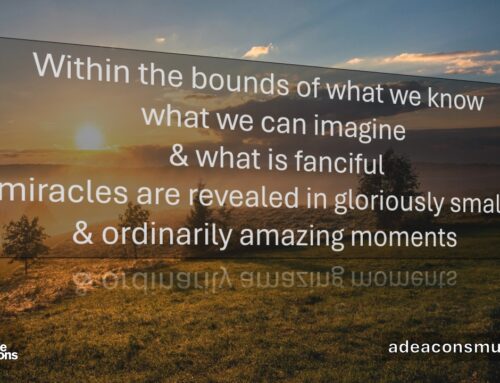I am the child of a survivor. When I called my parent to share what I was considering writing about for this week's musing, I did so with a deep respect and awareness of what a survivor walks with every and each day. I remember the nightmares waking me and the moments of extreme fragility in my growing.
I am the grandchild of a survivor. I could not call my grandparent to share the way this week's blog was beginning to unfold. I know that the choices that were made to stay whole, live with dignity, occurred in a culture steeped in patriarchy and paternalism that has and does silence, so as to normalise.
These two women, who reared and raised me, who carry(ied) fracture lines that reflect stories not mine to tell, are my heroes. I learn(ed) from them that we are all fragile, yet tenacious. Life is resilient in the face of struggle and pain. The choices to live through and with horrors incomprehensible to me moulded these two women to seize life fervently, though tears fell and, at times, with cries of anguish. More often than not, however, they have lived with a joy and deep engagement with other people that never denies the shadows through which they have walked.
Though it is and never will be my place to speak for those who survive the reality of the rape culture in which we live, I do think I can speak from my own vantage. As someone who has chosen to walk through life with a Christian lens, I aspire to model and live an expansive faith. There can be no denying that there is discomfort with the term 'rape culture' and that is the place from which I invite us to continue in our conversation …
There are many appropriate and helpful challenges to the Christian tradition. As a community, we have too often confused culture with our faith. In those horrible mistakes, we have nurtured colonialism that has ravaged the lives of Indigenous peoples and shaped theologies that are inflexible to embrace that we are all bid to shine. In the case of this musing, I invite us to recognise the role in which the Christian tradition has been co-opted and complicit in shaping a patriarchal culture that stratifies us. Gender, race, sexual identity and language are a few of the patriarchal implications that we might see in the proverbial mirror if we are courageous enough to look. With such daring, we might even realise the collective trauma in which we live as a result of the rigid nature of binaries such as male/female, white/colour, straight/LGBTTQ and English/other.
I can hear the questions: so why bother? Why choose to commit to a tradition with blood on its hands? Why embrace religious texts that demonstrate the very things that the #MeToo movement boldly, helpfully and appropriately highlights?
I believe that the life and ministry, resurrection and new life that Jesus offers those who choose this faith tradition helps address those question. If his model is the lens through which I engage with Sacred Scriptures and the world into which I walk each day, then it is a critique of the injustices that were and most unfortunately continue to be perpetuated. For the Abrahamic tradition, the gauge of living faithfully is the degree to which widows, children and the Stranger suffer oppression and marginalisation. #MeToo clearly indicates there is work left to be done!
As a child of those who have experienced the realities of a patriarchal rape culture, I believe it is more important than ever for Christians to interrogate our theologies mercilessly. I believe we have to stand-up and speak as prophets to a culture in which we have been complicit shaping. Doing this together invites us to deconstruct it in order to invite all of us – victims and survivors, perpetrators and the silent – to shift a central assumption of patriarchy: that we are individuals and disconnected from one another.
I do not mean to imply that those perpetrators, who have made choices to dehumanise and soul-devour others, do not have agency. And – at the same time – part of the role silence performs in a patriarchal culture is that no one talks. If no one talks, then no one is engaging in difficult, hard, tear-wrenching conversations. When the perpetrator is flattened to the act and the victim is simplified to passivity, it enables a cultural response that finds accountability in that individualised relationship: victim and offender. When we collectively find ways to highlight and foster our literal interconnexions, we are better able to recognise that we can only begin to make changes by exploring relating to one another differently.
There are no easy fixes or solutions for a culture that would rather silence the multiple stories being revealed by #MeToo. Yet, and this is just one of the paradox' of faith, the very fact that we now have space to have difficult conversations is hopeful. It is hopeful, because we now have choices that can allow us to see one another as human. In the human condition, even with our mistakes and fractures, in our hurt from and to one another, we are invited to recognise that we are collectively blessed kin to a Creator that longs for us to shine. #MayItBeSo








Beautifully written! All perspectives must unite for support to be shared in the diverse nature it needs 🙂
Thanks for your kind affirmation and engagement! I agree that such an issue requires many voices to address the silence and to offer support to one another. As well, it feels important to be particularly attentive to those who are not at a place to publicly acknowledge such hurt: does that make sense?
Thanks for this thoughtful post. I am a woman who is a survivor of an adulterous affair. I was not raped. However, the horrible part is people say I am forgiven and as a forgiven person, the realty is quite different. Speaking out about my affair and writing “The Ecumenical Affairl as a memoir has offended many Christians, especially because my affair draws a parallel with Jesus and his relationship with Mary Magdalene.You would think that my book would be flying off the shelves and Christian leaders at all levels of the church would be wanting to interview me. Quite the contrary. As the truth comes to them as who the man is…his identity,although not explicitly disclosed, has silenced them. Had I been raped, I would be an innocent victim and someone to rally around and support. Being a willing participant, I am a forgiven sinner and told I am fortunate that no one condemns me. But naming the man is not on. Naming him and showing my love for him and his Martha is what draws the condemnation. Naming him, even implicitly hurts his reputation, and undermines his credibility as an esteemed leader of the church and worries his family and community.
Hi Linda,
Thanks for the affirmation and the trust. I have been thinking of how to honour your sharing and realise words are inadequate. What I hope is honouring, therefore, is that I pray that as we interrogate our ways of being church, we might better remember the egalitarian longing that echoes from the early community called the Way. Thank you.